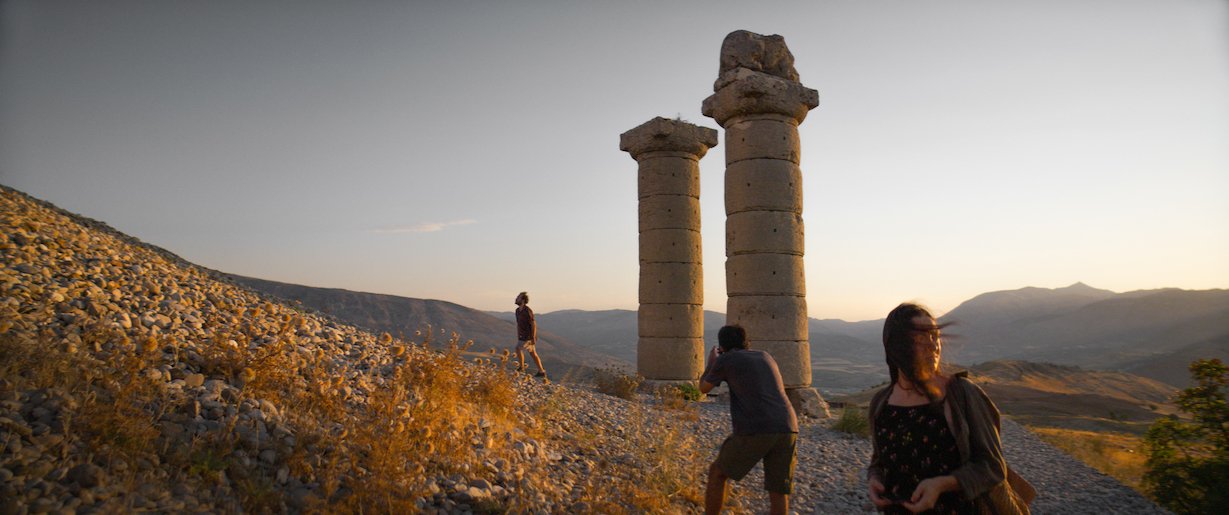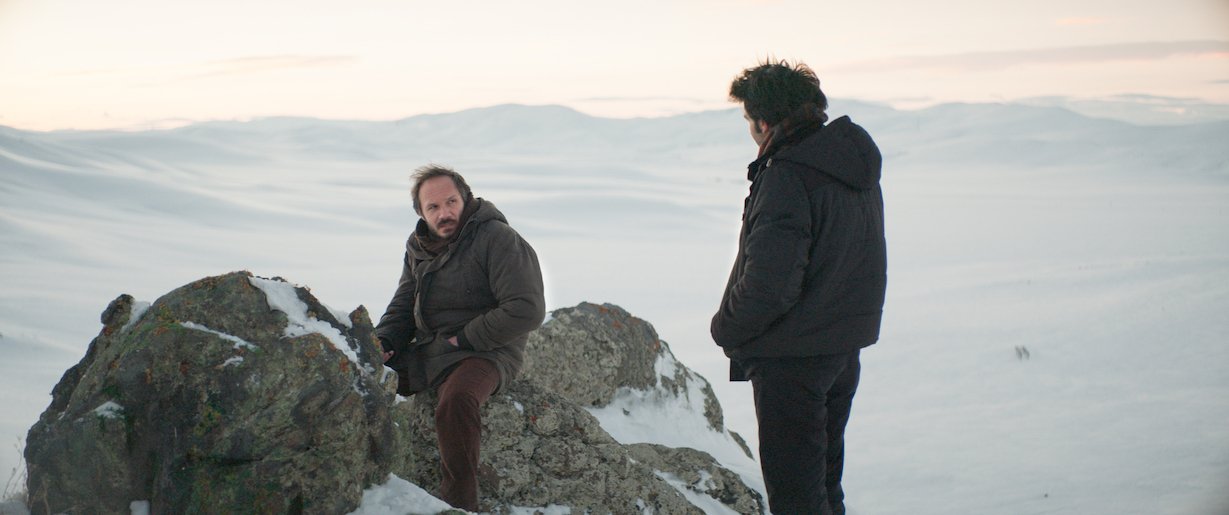In the Long ‘Grasses’
You’ll come for Nuri Bilge Ceylan’s auteurist cinema, sure. But you’ll stay for Merve Dizdar’s awesome performance.
ABout DRy Grasses
Director: Nuri Bilge Ceylan • Writers: Nuri Bilge Ceylan, Ebru Ceylan, Akın Aksu
Starring: Deniz Celiloğlu, Merve Dizdar, Musab Ekici, Ece Bağcı
Türkiye / France / Germany • 3hrs 17mins
Opens Hong Kong December 7 • IIA
Grade: B-
After the opening minutes of Nuri Bilge Ceylan’s About Dry Grasses (Kuru Otlar Üstüne), in which we watch a dude slowly walk from the far distance towards the camera and across the snowy Eastern Anatolian landscape, in total silence – except for the crunch of snow underfoot – you know precisely what kind of movie it’s going to be. It’s one of Those Movies: intensely verbose, aggressively artistic and entirely wrapped up in its own genius. Or rather, Ceylan is wrapped up in Ceylan’s own genius. Unlike Oppenheimer or Killers of the Flower Moon, there are plenty of passages that could be chopped from Grasses and have zero impact on the final product. It’s loaded with long stretches of dialogue that are just Ceylan’s observations, debates, and socio-political philosophy as filtered through the characters in what is essentially a small town drama. Thing is, some more engaging than others.
About Dry Grasses is very much of a piece with Ceylan’s other films, in particular 2002’s Distant and 2018’s The Wild Pear Tree, with their schisms between the urban and rural/small town, the erudite and uneducated, the political and passive. It’s opaque and cryptic, with a loose-hanging ending that’s less profound than it thinks it is. There’s a reason Ceylan has never been quite as accessible as, say, Fatih Akin (In the Fade, okay fine, he’s Turkish-German), who’s broader interest in narrative make his work more watchable. Still, Kürşat Üresin and Cevahir Şahin’s gorgeous widescreen photography sucks you in, and you kind of get hung up on the morality Ceylan’s dissecting under his character studying microscope. Problem is, at that ungainly running time, Ceylan loses focus in the last act and winds up in a soap opera morass.
Samet (Deniz Celiloğlu) is a schoolteacher and all around asshole, who for reasons unknown is banished to work in a small village in Eastern Anatolia. He hates it. He thinks he’s living among savages. He makes no attempt to hide his contempt most of the time. He bunks with his sweet-natured pal and fellow teacher Kenan (Musab Ekici), who is actively looking for a wife. Luckily, Samet has been swiping right and meets Nuray (Best Actress winner at Cannes, Merve Dizdar), another teacher and one-time activist who lost a leg in a terrorist explosion. Samet brushes her off – because he’s hot shit – and sets her up with Kenan, with whom she hits it off despite their seeming differences. But hold up: a love triangle forms when Samet finds out Nuray may be his ticket back to Istanbul. He seriously cock blocks Kenan.
While this is going on both Samet and Kenan are accused of sexual misconduct by two girls in the school, including Sevim (Ece Bağcı), who Samet thought of as a buddy. She almost costs him his job, except of course the region’s Director of Education (Yıldırım Gücük) and the other investigating players are men. Alert the media.
Straight up, without Dizdar’s luminous presence and sheer force of personality, About Dry Grasses would very nearly be insufferable. Nuray, and Dizdar’s interpretation of her, brings most the fraying threads together and somehow gives the film a through-line; a backbone that keeps us invested in anti-hero Samet’s shitty behaviour and wondering about the consequences of it – with Sevim, with Kenan, with Nuray. But Ceylan has plenty of lecturing to get off his chest, and so piles a lot of excess baggage on the film it doesn’t need. The Sevim story deserves more consideration than to be a cog in Samet’s career wheel (the resolution between these two is extremely frustrating), and a C-plot involving a local slacker goes nowhere and says nothing. There’s a Chekovian gun (literally) but no Chekovian pay-off. But, again, thankfully, it’s Dizdar to the rescue, an absolute marvel in a protracted and chatty dinner scene that doesn’t even hint at ideas about male ego and entitlement, the civic duty of resistance – in suffocating modern Türkiye – desire, ambition and loyalty. It just lays them bare. Dizdar and Celiloğlu make it work, but the fallout of their meal is as yawn-inducingly predictable as any romantic melodrama. Dizdar deserved better, and Ceylan should have made his film about its antagonist. — DEK



